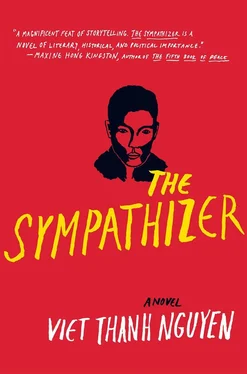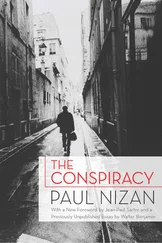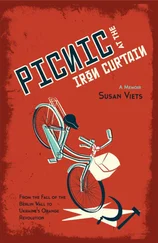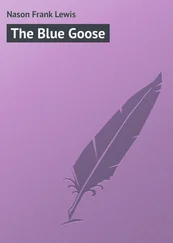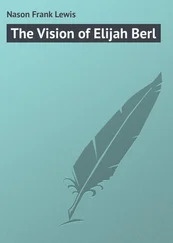Dare I admit it? Dare I confess? America, land of supermarkets and superhighways, of supersonic jets and Superman, of supercarriers and the Super Bowl! America, a country not content simply to give itself a name on its bloody birth, but one that insisted for the first time in history on a mysterious acronym, USA, a trifecta of letters outdone later only by the quartet of the USSR. Although every country thought itself superior in its own way, was there ever a country that coined so many “super” terms from the federal bank of its narcissism, was not only superconfident but also truly superpowerful, that would not be satisfied until it locked every nation of the world into a full nelson and made it cry Uncle Sam?
All right, I admit it! I said. I confess.
He chuckled and said, Consider yourself lucky. I’ve never left our wonderful homeland.
Lucky, am I? At least you feel at home here.
Home is overrated, he said.
Easy for him to say when his father and mother got along reasonably well, while his siblings looked the other way when it came to his revolutionary sympathies. This was common enough when many a family was divided against itself, some fighting for the north and some for the south, some fighting for communism and some for nationalism. Still, no matter how divided, all saw themselves as patriots fighting for a country to which they belonged. When I reminded him that I did not belong here, he said, You don’t belong in America, either. Perhaps, I said. But I wasn’t born there. I was born here.
Outside the basilica, we said good-bye, our real farewell, not the one staged later for Bon. I’m leaving you my records and my books, I said. I know you’ve always wanted them. Thanks, he said, squeezing my hand hard. And good luck. When do I get to come home? I asked. Giving me a look of great sympathy, he said, My friend, I’m a subversive, not a seer. The timetable for your return will depend on what your General plans. And as the General drove by the basilica, I could not say what his plans were besides escaping the country. I only assumed that he had more in mind than the futile words emblazoned on the banners flanking the boulevard leading to the presidential palace, which a dissident pilot had strafed earlier in the month. NO LAND TO THE COMMUNISTS! NO COMMUNISTS IN THE SOUTH! NO COALITION GOVERNMENT! NO NEGOTIATION! I could see an impassive guardsman standing impaled at attention under his roofed post, but before we reached the palace the General finally, mercifully set a course for the airport by turning right on Pasteur. Somewhere far away, a heavy machine gun fired in uneven, staccato bursts. When a dull mortar grunted, Duc whimpered in his mother’s arms. Hush, darling, she said. We’re only going on a trip. Bon stroked his son’s wispy hair and said, Will we ever see these streets again? I said, We have to believe we’ll see them again, don’t we?
Bon draped his arm over my shoulders and we squeezed together in the stairwell, hanging our heads out the door and holding hands as the glum apartments rolled by, lights and eyes peeking from behind curtains and shutters. Noses to the wind, we inhaled a farrago of scents: charcoal and jasmine, rotting fruit and eucalyptus, gasoline and ammonia, a swirling belch from the city’s poorly irrigated gut. As we approached the airport, the shadowy cross of an airplane roared overhead, all lights extinguished. At the gates, prickly rolls of barbed wire sagged with middle-aged disappointment. Behind the wire waited a squad of sullen military policemen and their young lieutenant, rifles in hand and truncheons swinging from belts. My chest thumped as the lieutenant approached the General’s Citroën, leaned down by the driver’s window to exchange a few words, then glanced in my direction where I stood leaning out the door of the bus. I had tracked him down on the louche major’s information, to the canal-side slum he lived in with his wife, three children, parents, and in-laws, all of whom were dependent on a salary that was not enough to feed half of them. This was the typical lot of the young officer, but my task on the afternoon I visited last week was to discover what kind of man had been molded from this poor clay. In his skivvies, sitting on the edge of the wooden bed he shared with his wife and children, the half-naked lieutenant had the cornered look of a political prisoner freshly dropped into a tiger cage, wary and a bit frightened but not yet physically broken. You want me to stab my country in the back, he said tonelessly, the unlit cigarette I had given him in his hand. You want to pay me to let cowards and traitors escape. You want me to encourage my men to do the same.
I’m not going to insult your intelligence by pretending otherwise, I said. I spoke mostly for the benefit of the jury — his wife, parents, and in-laws, who sat, squatted, or stood in the tight confines of the sweltering, tin-roofed shack. Hunger had lent them emaciated cheekbones, the kind I knew from my own mother, who had suffered so much for me. I admire you, Lieutenant, I said, and I did. You’re an honest man, and it’s hard to find honest men when men have families to feed. The least I can do to reward you is to offer you three thousand dollars. This was a month’s salary for his entire platoon. His wife did her duty and demanded ten. Eventually we agreed on five, half paid then, half due at the airport. As my bus rolled by, he snatched from my hand the envelope with the cash, and in his eyes I saw the same look the communist agent had given me when I had pulled that list of names from her mouth. Although he could have shot me or turned us back, he did what I gambled every honorable man forced to take a bribe would do. He let us all pass, holding up his end of the bargain as the last fig leaf of his dignity. I averted my eyes from his humiliation. If — let me indulge in the conditional for a moment — if the southern army comprised only men like him, it would have won. I confess that I admired him, even though he was my enemy. It is always better to admire the best among our foes rather than the worst among our friends. Wouldn’t you agree, Commandant?
It was nearly nine as we drove through the metropolis that was the airport complex, on well-paved streets past Quonset huts, gabled barracks, nondescript offices, and tubular warehouses, deep into a miniature city in Saigon yet outside of it. This semiautonomous territory was once one of the world’s busiest airports, a hub for all kinds of lethal and nonlethal sorties and missions, including those flown by Air America, the CIA’s airline. Our generals stashed their families here, while American generals crafted their stratagems in offices stocked with imported steel furniture. Our destination was the compound of the Defense Attaché Office. With typical cheekiness, the Americans had nicknamed it Dodge City, the town where six-shooters ruled and where saloon girls danced the cancan, as was much the case here in Saigon. But while sheriffs kept the peace in the real Dodge City, American marines guarded this evacuation center. I had not seen so many since ’73, when they were a ragged, defeated lot departing from this airfield. But these young marines had never seen combat and had been in this country only a few weeks. Bright-eyed and clean-shaven, with not a hint of a needle track in the crooks of their arms or a whiff of marijuana in their pressed, jungle-free fatigues, they watched impassively as our passengers disembarked into a parking lot already crowded with hundreds of other nervous evacuees. I joined the General and Claude by the Citroën, where the General was handing over his keys. I’ll return them in the States, sir, Claude said. No, leave them in the ignition, the General said. I would not want anyone to damage the car while they steal it, since it will be stolen anyway. Enjoy her while you can, Claude.
Читать дальше
